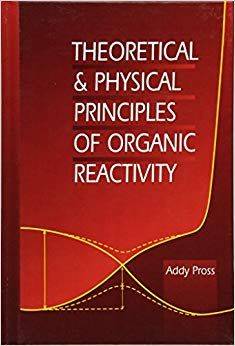
Download Theoretical and Physical Principles of Organic Reactivity PDF EPUB
Author: Author
Pages: 312
Size: 1.180,57 Kb
Publication Date: September 1,1995
Category: Reactions
Typically, physical organic chemistry and theoretical organicchemistry have already been treated simply because separate disciplines.
Building on the theoretical framework created in parts A and B,part C provides an overview of the essential reactions of organicchemistry: nucleophilic and electrophilic substitution, and radicaland pericyclic reactivity. Component A presents an introductory explanation ofmolecular orbital and valence relationship theories with focus on thequalitative aspects which can be put on practical problems inorganic framework and reactivity. Furthermore,the writer draws from physical chemistry and transition-metalchemistry to provide a genuine and detailed explanation ofelectron transfer theory, and addresses the latest discovery that theelectron transfer procedure is intimately linked to many basicorganic procedures.
This reserve has been split into three parts to facilitate itsmixture of classical organic chemistry with brand-new and establishedtheoretical ideas. An integral element ofthis new strategy is the author’s considerable nonmathematicaldescription of the lately developed curve-crossing model thatdescribes why chemical substance reactions possess an activation barrier, andspecifies the elements that govern the barrier heights. Component B describes the keyprinciples of physical organic chemistry and includes a mainlyqualitative explanation of the Marcus theory of electrontransfer. This brand-new bookbridges both of these areas to be able to supply the reader a newperspective on the type of organic reactivity. Furthermore, part C obviously explains themost latest unifying explanation of organic reactivity for organicchemists and for graduate and advanced undergraduate learners.